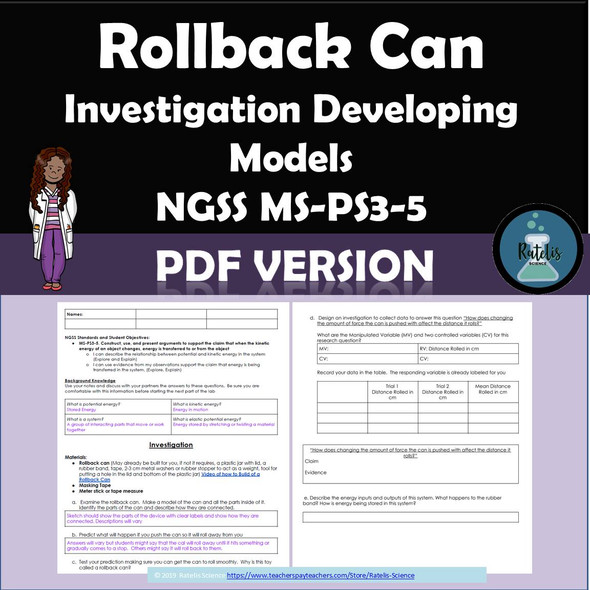Description
These engaging stations (GOOGLE and PDF versions) allow students to start to construct their own understanding of the structure and movement of solids, liquids, and gases. The students will carry out stations to answer three questions:
How easy is it to compress solids, liquids, and gases?
What is the difference in movement of solids, liquids, and gases?
What happens when you heat solids, liquids, and gases?
There are three teacher directed stations that the students will perform. In addition, students will design and implement their own experiment to answer the question: What happens when you heat a gas?.
Students will answer an application question after the stations are completed and complete a summary statement worksheet.
Easily obtainable materials are used for these stations (see list below).
Possible student responses for the stations, application question, and summary statement worksheet are given in the detailed teacher notes.
Prior knowledge required before performing these stations:
- There are three main phases of matter: solids, liquids, and gases.
- Matter is made up of very small particles that we cannot see (atoms).
The two science and engineering practices below are incorporated in this investigation:
Planning and carrying out investigations.
Developing and using models.
Included in this resource:
Teacher slides (14 slides)
Detailed teacher notes including all materials needed and possible sources of these materials (8 pages)
Printable student worksheets with station instructions and analysis questions.(5 pages)
Sample answers for student worksheets
Suggested materials needed for students in the classroom:
Plastic syringe without the needle
Metal cube or other piece of metal
Glass container of water
Food coloring
Source of hot water
Perfume
Metal ball and ring (or show video of experiment)
Thermometer (alcohol)
Balloons
Empty soda bottles
Containers with lids that easily pop off such as film canisters or empty tennis ball containers
Email any questions you have with subject line “Questions on stations investigating the three phases of matter” to us at engagersinscience@gmail.com and we’ll be happy to answer them.
Visit our Engagers in Science Store on Amped Up Learning at
https://ampeduplearning.com/teacher-contributor-stores/science-contributors/engagers-in-science/
























